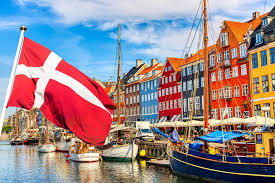
Breaking News
 If you're a criminal you'll be deported
If you're a criminal you'll be deported
 When Bill Gates isn't investing in dangerous ineffective vaccines, blocking out the sun,...
When Bill Gates isn't investing in dangerous ineffective vaccines, blocking out the sun,...
 US dollar exodus to unleash $3.2 trillion 'avalanche' of selling, currency analyst says
US dollar exodus to unleash $3.2 trillion 'avalanche' of selling, currency analyst says
 Bitcoin ETF Inflows Top Gold ETF Inflows Year-To-Date
Bitcoin ETF Inflows Top Gold ETF Inflows Year-To-Date
Top Tech News
 Cab-less truck glider leaps autonomously between road and rail
Cab-less truck glider leaps autonomously between road and rail
 Can Tesla DOJO Chips Pass Nvidia GPUs?
Can Tesla DOJO Chips Pass Nvidia GPUs?
 Iron-fortified lumber could be a greener alternative to steel beams
Iron-fortified lumber could be a greener alternative to steel beams
 One man, 856 venom hits, and the path to a universal snakebite cure
One man, 856 venom hits, and the path to a universal snakebite cure
 Dr. McCullough reveals cancer-fighting drug Big Pharma hopes you never hear about…
Dr. McCullough reveals cancer-fighting drug Big Pharma hopes you never hear about…
 EXCLUSIVE: Raytheon Whistleblower Who Exposed The Neutrino Earthquake Weapon In Antarctica...
EXCLUSIVE: Raytheon Whistleblower Who Exposed The Neutrino Earthquake Weapon In Antarctica...
 Doctors Say Injecting Gold Into Eyeballs Could Restore Lost Vision
Doctors Say Injecting Gold Into Eyeballs Could Restore Lost Vision
 Dark Matter: An 86-lb, 800-hp EV motor by Koenigsegg
Dark Matter: An 86-lb, 800-hp EV motor by Koenigsegg
 Spacetop puts a massive multi-window workspace in front of your eyes
Spacetop puts a massive multi-window workspace in front of your eyes
The Dark Side of Denmark's Welfare State

For the past three months, I've been living in Denmark, and I genuinely loved it. The streets are clean, the bike lanes immaculate, and the sense of public trust is unlike anything I've experienced in the US. It's no wonder people romanticize this place—"free" healthcare, university stipends, and a government that many believe works well.
But the longer I stayed, the more I started noticing cracks. They weren't always visible at first—more like patterns in conversation, stories from international friends, or the quiet discomfort that settled in certain moments. Coming from the United States, where diversity and individualism are more overtly woven into everyday life, I couldn't help but notice how the very system that offers so much comfort in Denmark comes with a cost.
The Ghetto Laws: Welfare-Driven Discrimination in Practice
In 2018, Denmark introduced the "Ghettoplanen" (Ghetto Laws), later rebranded as the Parallel Society Laws. These policies target neighborhoods where more than half the residents are of "non-Western" background—a term that includes people from countries outside the EU and North America, even if they were born in Denmark or are second- or third-generation citizens. Children whose grandparents immigrated from places like Turkey, Lebanon, or Somalia are still counted as "non-Western" under the law.
If a neighborhood meets enough criteria—low income, high unemployment, and a "non-Western" majority—it faces state intervention. This can include:
Mandatory preschool from age one for all children of "non-Western" descent to instill Danish values,
Harsher criminal penalties for offenses committed within these zones,
Demolition of public housing and forced relocation of residents to "de-concentrate" immigrant populations, and
Restrictions on who can move in, effectively capping the number of "non-Western" residents.
The government claims these measures promote integration, but they operate more like demographic engineering. The message is clear: too much cultural difference in one place is unacceptable.
To someone from the US, this feels disturbingly familiar. The targeted housing policies, the coded language about "undesirable neighborhoods," the use of state power to reshape communities—it all echoes redlining. The difference is that in Denmark, it isn't a buried legacy. It's law, in force today, designed to preserve cultural homogeneity. And while the justification is social cohesion, the result is a system that penalizes people for their ancestry.
When Difference Becomes a Liability
Welfare states like Denmark's aren't built on taxes alone—they rest on a shared cultural foundation. The social contract assumes a common understanding of how to live: shared values, similar behaviors, and a broadly uniform way of life. While that foundation can foster trust and cohesion, it also creates pressure to conform.

 Node without Consent
Node without Consent

